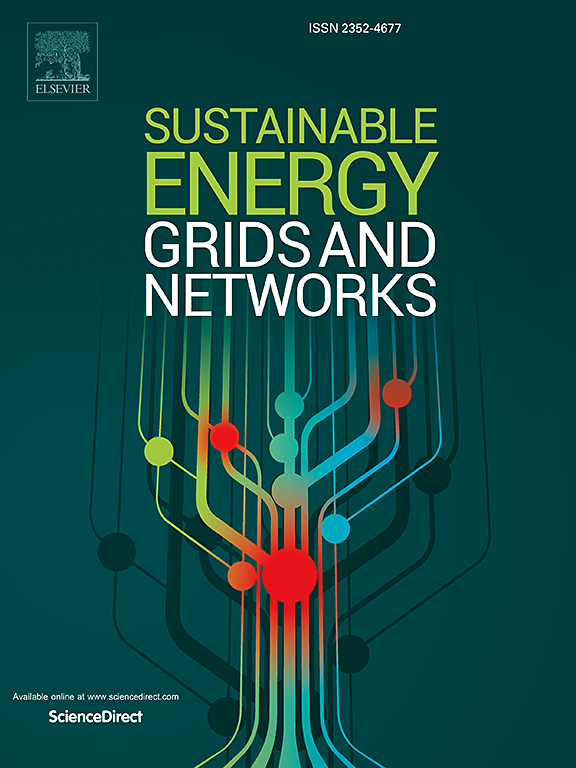当智能充电遇到智能用户:价格敏感的插电行为如何重塑电动汽车整合
IF 5.6
2区 工程技术
Q2 ENERGY & FUELS
引用次数: 0
摘要
电动汽车的快速普及给能源系统带来了机遇和挑战。虽然智能充电算法已被广泛研究以优化电动汽车充电计划,但电动汽车用户在智能充电之前的插电行为在很大程度上仍未被探索。本研究通过基于代理的仿真模型近似人类插电决策过程,捕捉电动汽车用户如何根据充电状态和动态电价调整其插电行为,从而解决了这一关键差距。此外,我们还评估了插电行为对电动汽车用户充电成本、电池寿命和电动汽车车队峰值电力需求的影响。我们的数值分析表明,价格敏感的插电行为可以大大降低充电成本,并通常延长电池寿命,尽管一些用户可能会因为更长的放电周期而缩短电池寿命。此外,这种行为还会导致同步充电模式,增加峰值电力需求,并可能使电网基础设施紧张。这些发现揭示了用户利益与电网运行弊端之间的权衡,强调了在评估电动汽车用户行为时需要采用整体方法。此外,我们的研究强调了用户参与智能充电技术的重要性。本文章由计算机程序翻译,如有差异,请以英文原文为准。
When smart charging meets smart users: How price-sensitive plug-in behavior reshapes EV integration
The rapid adoption of electric vehicles (EVs) presents both opportunities and challenges for energy systems. While smart charging algorithms have been widely studied to optimize EV charging schedules, the role of EV users' plug-in behavior that precedes any smart charging remains largely unexplored. This study addresses this critical gap by approximating the human plug-in decision-making process through an agent-based simulation model, capturing how EV users adjust their plug-in behavior in response to status of charge and dynamic electricity prices. Furthermore, we evaluate the impact of plug-in behavior on EV users' charging cost, battery lifetime, and EV fleet peak power demand. Our numerical analysis reveals that a price-sensitive plug-in behavior can substantially decrease charging cost and generally extend battery lifetime, though some users may experience shorter battery lifespans due to deeper discharge cycles. Moreover, this behavior also leads to synchronized charging patterns, increasing peak power demand, and potentially straining grid infrastructure. These findings reveal the trade-off between user benefits and grid operation drawbacks, underscoring the need for holistic approaches in the assessment of EV user behavior. Furthermore, our study highlights the importance of user engagement in smart charging technologies.
求助全文
通过发布文献求助,成功后即可免费获取论文全文。
去求助
来源期刊

Sustainable Energy Grids & Networks
Energy-Energy Engineering and Power Technology
CiteScore
7.90
自引率
13.00%
发文量
206
审稿时长
49 days
期刊介绍:
Sustainable Energy, Grids and Networks (SEGAN)is an international peer-reviewed publication for theoretical and applied research dealing with energy, information grids and power networks, including smart grids from super to micro grid scales. SEGAN welcomes papers describing fundamental advances in mathematical, statistical or computational methods with application to power and energy systems, as well as papers on applications, computation and modeling in the areas of electrical and energy systems with coupled information and communication technologies.
 求助内容:
求助内容: 应助结果提醒方式:
应助结果提醒方式:


